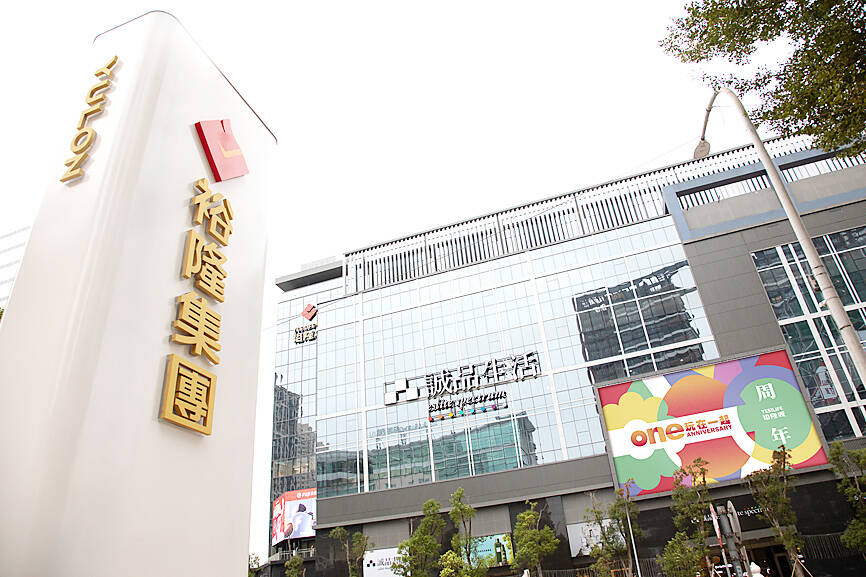Yulon Motor Co (裕隆汽車) yesterday said that factory utilization would be stable this year as US President Donald Trump’s reciprocal tariff proposal should not have an immediate impact on the business of its major electric vehicle customers including Foxtron Vehicle Technologies Co (鴻華先進).
Yulon’s comments came as investors were concerned that Taiwan might slash import car tariffs from 17.5 percent to zero as lawmakers have proposed, or to a level matching the 2.5 percent levied by the US. The Ministry of Economic Affairs has suggested a gradual tariff cut amid fears over a drastic decline in locally manufactured vehicles’ market share.
Foxtron is a joint venture between Yulon and Hon Hai Precision Industry Co (鴻海精密). Yulon counts Foxtron and Yulon Nissan Motor Co (裕隆日產) as its major customers for contract manufacturing services.

Photo courtesy of Yulon Motor Co
“We have to monitor how the tariff issue plays out, as it is closely linked to the US’ reciprocal tariff policy,” Yulon president Hsu Kuo-hsing (許國興) said at a virtual earnings conference yesterday.
“We will have significant business from our major client, Foxtron, and our own brand in the future. We believe those [businesses] will not be affected by the import tariff adjustments [by Taiwan],” Hsu said.
Yulon’s shipments this year would remain largely flat from last year’s level, he added.
Hsu declined to comment on a Bloomberg report last week that Hon Hai had reached an agreement with Mitsubishi Motors Corp to make electric vehicles (EVs) in Taiwan, or on whether Yulon would use its factories in Miaoli County’s Sanyi Township (三義) to assemble Mitsubishi cars.
“We will make cars for Foxtron on a contract basis. Any information about Foxtron and its customers should be disclosed by Foxtron,” Hsu said.
Yulon is the only carmaker in Taiwan that is capable of making EVs. The company has produced more than 10,000 EVs for affiliated Luxgen Motor Co (納智捷汽車), it said.
Yulon yesterday forecast that the nation’s new car sales this year would grow 2.9 percent to 462,000 units, compared with 449,000 units last year on the back of new model launches and sales promotion campaigns.
The company reported net profit declined 36 percent to NT$6.93 billion (US$209.4 million) last year, compared with NT$10.79 billion in 2023. Earnings per share dropped to NT$3.78 from NT$4.63.
The board of directors has approved a cash dividend distribution of NT$1.3 per share. That represented a payout ratio of 34.39 percent, matching the company’s policy of paying 30 percent to 50 percent of its earnings.

SECTOR LEADER: TSMC can increase capacity by as much as 20 percent or more in the advanced node part of the foundry market by 2030, an analyst said Taiwan Semiconductor Manufacturing Co (TSMC, 台積電) is expected to lead its peers in the advanced 2-nanometer process technology, despite competition from Samsung Electronics Co and Intel Corp, TrendForce Corp analyst Joanne Chiao (喬安) said. TSMC’s sophisticated products and its large production scale are expected to allow the company to continue dominating the global 2-nanometer process market this year, Chiao said. The world’s largest contract chipmaker is scheduled to begin mass production of chips made on the 2-nanometer process in its Hsinchu fab in the second half of this year. It would also hold a ceremony on Monday next week to

TECH CLUSTER: The US company’s new office is in the Shalun Smart Green Energy Science City, a new AI industry base and cybersecurity hub in southern Taiwan US chip designer Advanced Micro Devices Inc (AMD) yesterday launched an office in Tainan’s Gueiren District (歸仁), marking a significant milestone in the development of southern Taiwan’s artificial intelligence (AI) industry, the Tainan City Government said in a statement. AMD Taiwan general manager Vincent Chern (陳民皓) presided over the opening ceremony for the company’s new office at the Shalun Smart Green Energy Science City (沙崙智慧綠能科學城), a new AI industry base and cybersecurity hub in southern Taiwan. Facilities in the new office include an information processing center, and a research and development (R&D) center, the Tainan Economic Development Bureau said. The Ministry

ADVERSARIES: The new list includes 11 entities in China and one in Taiwan, which is a local branch of Chinese cloud computing firm Inspur Group The US added dozens of entities to a trade blacklist on Tuesday, the US Department of Commerce said, in part to disrupt Beijing’s artificial intelligence (AI) and advanced computing capabilities. The action affects 80 entities from countries including China, the United Arab Emirates and Iran, with the commerce department citing their “activities contrary to US national security and foreign policy.” Those added to the “entity list” are restricted from obtaining US items and technologies without government authorization. “We will not allow adversaries to exploit American technology to bolster their own militaries and threaten American lives,” US Secretary of Commerce Howard Lutnick said. The entities

Minister of Finance Chuang Tsui-yun (莊翠雲) yesterday told lawmakers that she “would not speculate,” but a “response plan” has been prepared in case Taiwan is targeted by US President Donald Trump’s reciprocal tariffs, which are to be announced on Wednesday next week. The Trump administration, including US Secretary of the Treasury Scott Bessent, has said that much of the proposed reciprocal tariffs would focus on the 15 countries that have the highest trade surpluses with the US. Bessent has referred to those countries as the “dirty 15,” but has not named them. Last year, Taiwan’s US$73.9 billion trade surplus with the US